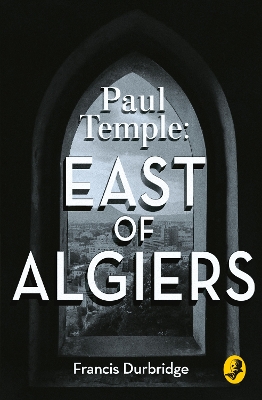Reviewed by brokentune on
To cut it short, this story was not great. It was really slow-moving and much of it just made no sense.
Part of the charm of the Paul Temple stories is that they are all rather similar and all follow the same formula. So, in East of Algiers we get the usual plot, too. Paul Temple stories always require the suspension of disbelief.
What I found absolutely ludicrous in this story was the way Durbridge wrote about the investigations in Paris and Tunis.
While in Paris, they collaborate with the local police in the investigation.
However, when they get to Tunis, they somehow seem to bypass the local police and the investigation seems to be led by their friend Sir Graham Forbes of Scotland Yard.
While Sir Graham does make mention of his being asked to work on the case by Interpol, the lack of local police involvement made it look like it was perfectly fine for foreign authorities to take control of matters that really would be outside of their jurisdiction.
The sense of Imperialism at work here spoiled some of the book for me. (And yes, it was a different time etc. etc.)
To be fair, tho, the story was not exactly interesting otherwise either, but Anthony Head's narration saved the book for me.
Oh, and why call the story East of Algiers, when the story is set in Tunis? Algeria or any other part of Algeria don't feature. I mean, sure, Tunisia is east of Algiers. That is true. But why not make reference in the title to something that actually has some relevance to the story?
These questions are entirely rhetorical, of course. I'm moving on to the next book.
Reading updates
- Started reading
- 27 June, 2020: Finished reading
- 27 June, 2020: Reviewed
